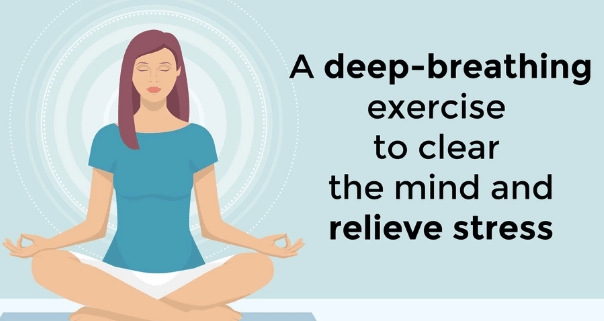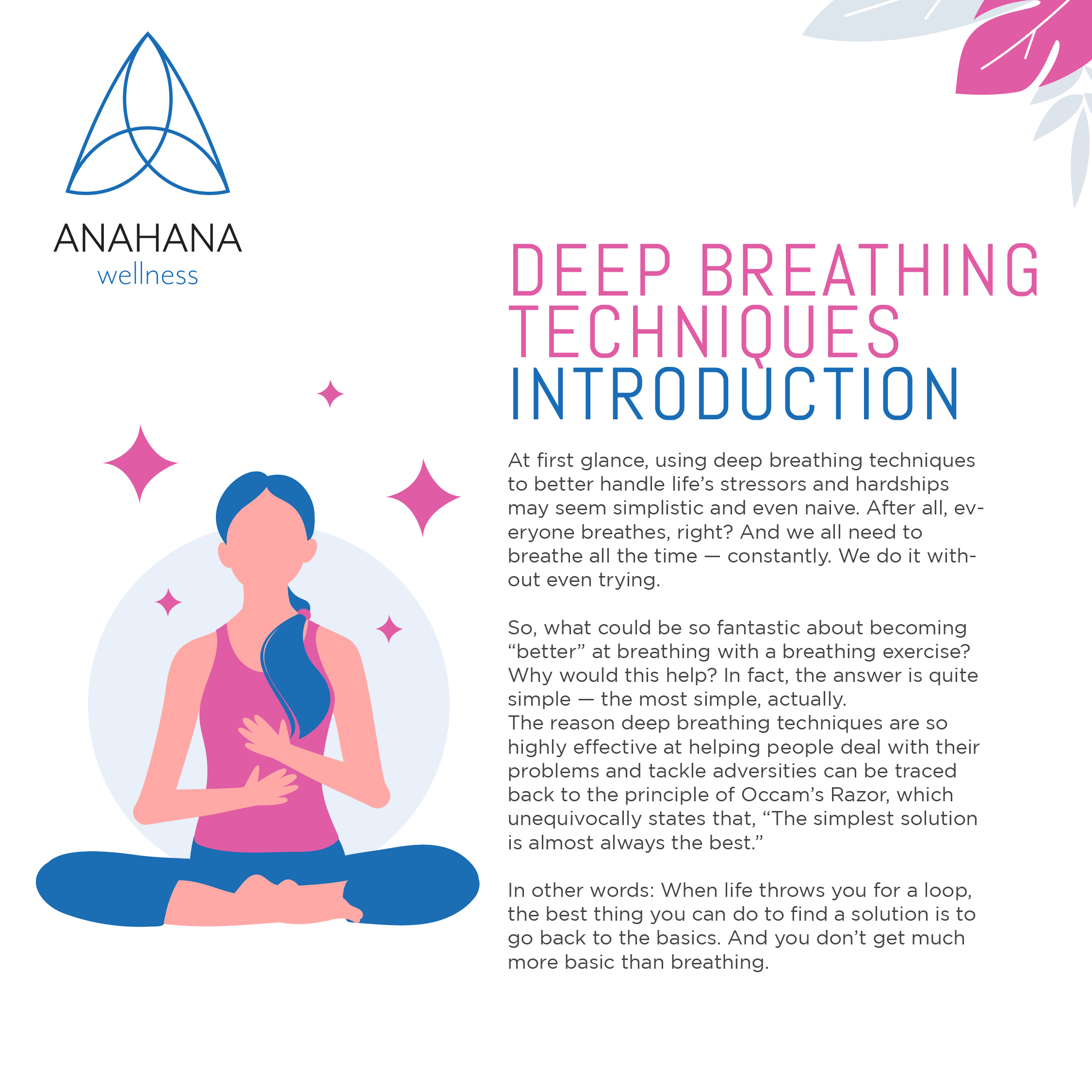An Unbiased View of How to calm a stressed kid? A one-minute video can help


Deep Breathing — The Truly Essential Exercise - Marcelle Pick, OB/GYN NP
An Unbiased View of Take a Deep Breath - The American Institute of Stress
Keep your shoulders unwinded. A Good Read should broaden, and your chest should rise extremely bit. Breathe out gradually through your mouth. As you blow air out, bag your lips somewhat but keep your jaw relaxed. You may hear a soft "whooshing" sound as you exhale. Repeat this breathing workout. Do it for numerous minutes up until you start to feel better.

This may be because of anxiety triggered by focusing on your breathing, or you might be not able to do the exercise correctly without some practice. Shallow Breathing Contributes to Stress and anxiety When people are nervous, they tend to take rapid, shallow breaths that come directly from the chest. This type of breathing, called thoracic or chest breathing, causes an upset in the oxygen and carbon dioxide levels in the body leading to increased heart rate, dizziness, muscle stress, and other physical feelings.

A Practice of Deep Breathing Will Strengthen Your Sobriety
Diaphragmatic or deep breathing, on the other hand, stimulates the parasympathetic nerve system, which belongs to the peripheral worried system responsible for managing heartbeat, blood circulation, breathing, and digestion. Deep breathing helps you prevent the "fight-or-flight" response (intense tension action) to psychologically or physically frightening situations. Chest vs. Stomach Breathing The majority of people aren't really conscious of the way they're breathing however, generally, there are 2 kinds of breathing patterns:: This type of breathing is a kind of deep, even breathing that engages your diaphragm, permitting your lungs to expand and developing unfavorable pressure that drives air in through the nose and mouth, filling your lungs.
Research: Why Breathing Is So Effective at Reducing Stress Things To Know Before You Buy
You're also probably utilizing this pattern of breathing when you're in an unwinded stage of sleep.: This kind of breathing comes from the chest and includes short, fast breaths. When you're nervous, you might not even understand that you're breathing in this manner. The easiest way to identify your breathing pattern is to put one hand on your upper abdominal area, near the waist, and the other in the middle of your chest.
If you're breathing appropriately, your abdomen need to expand and contract with each breath (and the hand on it must raise the most). It's especially essential to be conscious of these distinctions throughout demanding and distressed times when you're most likely to breathe from your chest. A Word From Verywell To make deep breathing work for you, it's important to listen to your body and be conscious of how anxiety is affecting your daily life.
